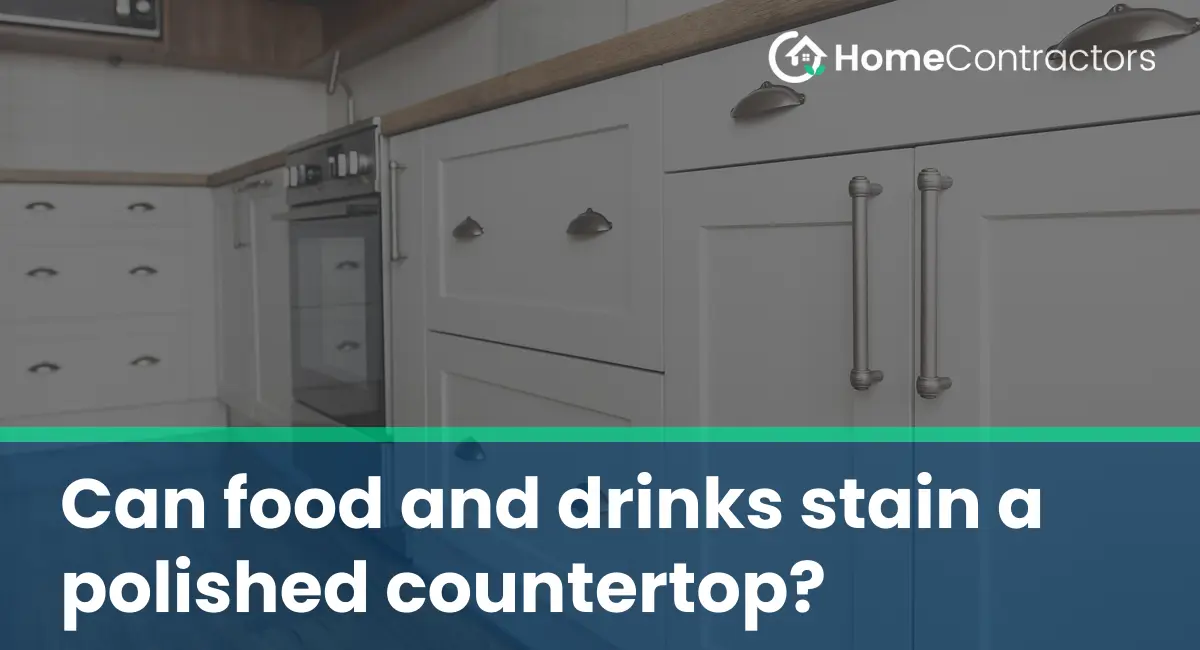Polished countertops add a touch of elegance and beauty to any kitchen or bathroom. They are a popular choice due to their durability and aesthetic appeal. However, one concern many homeowners have is whether food and drinks can stain these polished surfaces. In this article, we will delve into the factors that can cause staining and provide tips on how to prevent and remove stains from polished countertops.
Factors that can cause staining
1. Porosity of the countertop material
Not all countertop materials are created equal when it comes to porosity. Some materials like marble and granite are more porous than others, making them more susceptible to stains. Porous surfaces have more microscopic pores where liquids and pigments can seep in and cause discoloration. On the other hand, materials like quartz or solid surface typically have low porosity, making them more resistant to staining.
2. Acidic and pigmented foods/drinks
Acidic and pigmented foods and drinks are notorious for causing stains. Examples include red wine, coffee, tomato sauce, berries, and citrus fruits. These substances contain acidic compounds or natural dyes that can penetrate the countertop surface, leaving behind unsightly stains.
Preventing stains on polished countertops
1. Seal the countertop
Applying a high-quality sealant to a polished countertop can act as a protective barrier, reducing the chances of stains. Sealants create an invisible layer that prevents liquids from penetrating the surface. Depending on the material, resealing may be required every few years to maintain the effectiveness of the sealant.
2. Clean up spills promptly
Promptly cleaning up spills is crucial for preventing stains. Accidents happen, and if a spill occurs, be sure to wipe it away immediately. Use a soft cloth or paper towel to gently blot the area, avoiding rubbing, as it may spread the stain or damage the surface.
3. Use cutting boards and coasters
Using cutting boards when preparing food and coasters for drinks can prevent direct contact between the countertop and potentially stain-causing substances. Cutting boards also protect the surface from knife scratches, preserving its polished appearance.
Removing stains from polished countertops
Despite our best efforts, stains can sometimes occur on polished countertops. If this happens, the following tips may help in removing them:
1. Gentle cleaning agents
Start with the mildest cleaning agents and gradually escalate if needed. Warm water and mild dish soap should be the first line of defense. Avoid abrasive cleaners or scrub brushes, as they can scratch the surface.
2. Baking soda or hydrogen peroxide
For tougher stains, create a paste using baking soda and water, or a mixture of hydrogen peroxide and water. Apply the paste to the stained area, let it sit for a few minutes, then gently scrub and rinse. Be cautious when using hydrogen peroxide on natural stone countertops, as it may cause slight discoloration.
3. Specialty countertop cleaners
If the stain persists, consider using a specialty countertop cleaner formulated specifically for the material of your countertop. These cleaners are designed to effectively remove stains without damaging the surface.
While polished countertops can be prone to staining, with proper care and preventive measures, stains can be minimized or eliminated. Sealing the surface, cleaning up spills promptly, and using protective tools like cutting boards and coasters are effective ways to prevent stains. In the unfortunate event of a stain, starting with gentle cleaning agents and gradually utilizing stronger methods if necessary can aid in removal. By following these guidelines, you can keep your polished countertop looking pristine for years to come.
